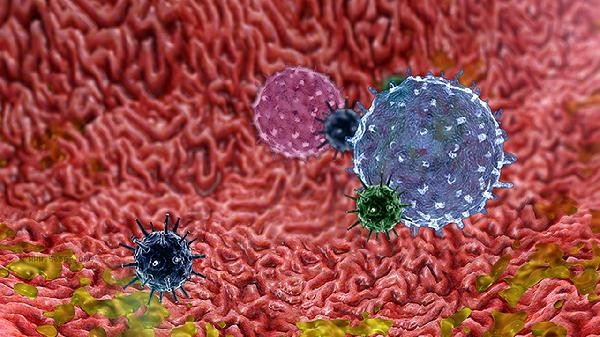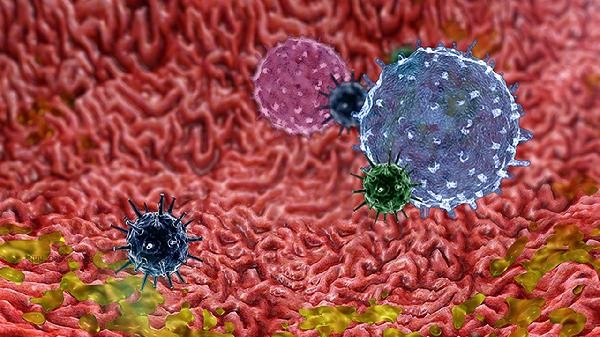A high neutrophil count usually indicates the presence of inflammatory reactions or infections in the body, mainly due to bacterial infections, stress reactions, tissue damage, drug effects, and blood system diseases. Neutrophils are an important component of the human immune system, and their elevated values are often associated with the activation of the body's defense mechanisms.

1. Bacterial infection:
Acute bacterial infection is the most common cause of neutropenia. When pathogens invade the human body, the bone marrow accelerates the release of neutrophils to engulf bacteria, leading to an increase in the proportion of these cells in peripheral blood. Commonly seen in diseases such as pneumonia, urinary tract infections, appendicitis, etc., patients may experience symptoms such as fever and local redness and swelling.
2. Stress response:
Intense exercise, trauma, surgery, or emotional stress can stimulate adrenaline secretion, prompting neutrophils in the marginal pool to enter the circulating pool. This physiological increase is usually transient, without clear infection lesions, and the value can recover on its own after the elimination of stress factors.
3. Tissue damage:

Tissue necrosis such as burns, myocardial infarction, and trauma can release inflammatory mediators and induce neutrophil migration to the site of injury. The metabolites produced by cell necrosis can stimulate bone marrow hematopoietic function, leading to sustained increase in neutrophils, often accompanied by abnormal inflammatory indicators such as elevated C-reactive protein.
4. Drug effects:
Corticosteroid drugs such as prednisone can directly stimulate bone marrow hematopoiesis, increasing the release of neutrophils. Some antibiotics, lithium supplements, and other drugs may also interfere with the distribution of granulocytes. The increased potency of these drugs can often be reversed after discontinuation, and a comprehensive judgment should be made based on medication history.
3. Hematological disorders:
Hematological disorders such as chronic myeloid leukemia and myeloproliferative tumors can lead to abnormal proliferation of granulocytes. This type of pathological elevation is often accompanied by the appearance of immature cells and splenomegaly, and further differential diagnosis is required through bone marrow puncture.

When high levels of neutrophils are found, it is recommended to recheck the blood routine and observe dynamic changes to avoid immediate blood collection after intense exercise. It is necessary to maintain sufficient sleep and supplement vitamin C and protein in moderation to enhance immunity in daily life. If there is a continuous increase accompanied by symptoms such as fever and fatigue, timely inflammation indicators and imaging examinations should be performed to rule out hidden infections or blood system abnormalities. When pregnant women and children show abnormal indicators, special attention should be paid to ruling out the possibility of special pathogen infection.









Comments (0)
Leave a Comment
No comments yet
Be the first to share your thoughts!